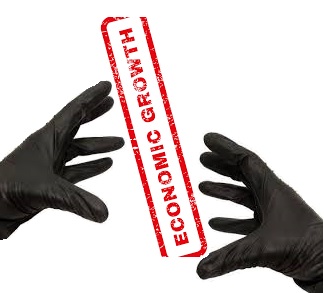Opponents of oil pipelines, such as the Keystone XL pipeline from Alberta to the U.S. Gulf Coast, have arguably caused unnecessary harm to the environment, reduced public safety, and slowed the Canadian economy.
Energy
The environmentalist war on fossil fuels has opened a new front: a war on pipelines. For years, activists claimed the world was rapidly depleting its oil and natural gas supplies. The fracking revolution (horizontal drilling and hydraulic fracturing) obliterated that...
Thoughts on Manitoba Hydro’s Solar Energy Program
On Earth Day, April 22, 2016, Manitoba Hydro announced its Solar Energy Program offering incentives and financial support for customers to adopt solar power to generate their own electricity and sell excess energy to Hydro. The Program was part of Hydro’s demand-side...
Choking Out Economic Growth with Bad Public Policy
With an estimated 1.6+ trillion cubic feet of natural gas literally under foot, Nova Scotian policy makers are choking out the economic growth potential for their province and communities with bad public policy. Their hasty decisions regarding the not-so-new...
Featured News
Computer Models, Like “Selfies,” are not Reality
In a recent article about climate change, Seth Borenstein, a science writer with the Associated Press, gave us a master class on how to sell the results of a computer model as if it represents reality. In the Borenstein world, a group of scientists can take a...
Air Canada Needs Travellers, Not Bailouts
A year and a half into the COVID-19 pandemic, the only thing keeping Air Canada alive is the federal-government bailouts. They are delaying the inevitable and sensible way out: cutting travel restrictions, encouraging tourism by ensuring effective containment and...
Hydro News
Manitoba is asking the PUB for an immediate rate increase that will contribute to a trend where over the last 6 years of rate increases running 45% above inflation.
Desorcy also said consumers are paying for dam-building projects, Keeyask and Conawapa, that are years away from being built and are contingent on whether Manitoba Hydro can ink long-term export deals with Minnesota and Wisconsin.
“If they don’t sign those contracts, Hydro is not forecasting the need to build Keeyask in the next 20 years, but these things are already affecting rates,” she said.
Smart Grids – Distributed Energy
Over at the progressive Grist site in November, there was an article posted on the comparative advantage of North America and China in energy systems. It makes for an interesting read.
These days the American Dream seems a touch haggard. We’ve become an anxious, ill-tempered nation of grievance-peddlers, drunk on fairy tales, waiting for someone else to solve our problems. Among other infantalizing features of modern American life is the fact that we are passive, thoughtless consumers of energy, forever suckling at a far-away teat, whether it’s foreign oil producers or politically connected corporate behemoths. We send money out of our communities; someone sends power in. We are as dependent as sheep.
Smart Grids – Regulatory Reform Needed
A commentary on how Smart Grids require regulatory reform is posted at Reason.com, which is a monthly print magazine of “free minds and free markets.”
The obsolete electro-mechanical electric power network, built by and for a monopoly industry, cannot support the kind of growth experienced during the last 20 years in so many other industries. All that stands in the way of vibrant, customerfriendly electricity products and services is an outdated infrastructure run by hesitant monopolies and regulated by bureaucrats with little incentive to improve things. We can do smarter.
Smart Grids – A Manitoba Perspective
The following article was originally released in June 2009 http://fcpp.org/publication.php/2804
Moving Manitoba Towards Smart Energy
Over the last few years, the provincial government and Manitoba Hydro have tied themselves in knots trying to figure out how to get electricity from massive northern dams to southern markets.
Smart Grids – Protecting Privacy
Smart Grids could be used to support the introduction of dynamic competition and customer choice into electrical markets. Embracing open standards and streamlining burdensome regulations are a route to that outcome.
Smart Grids – Adam Smith or Orwell?
A quick scan of blogs and media coverage of Smart Grids for electricity quickly reveals a fear of a system that could have been envisaged by Orwell. Fears of big brother type of systems are given voice by many, including Lawrence Solomon at the National Post.
Under the so-called “smart grid” that the UK is developing, the government-regulated utility will be able to decide when and where power should be delivered, to ensure that it meets the highest social purpose. Governments may, for example, decide that the needs of key industries take precedence over others, or that the needs of industry trump that of residential consumers. Governments would also be able to price power prohibitively if it is used for non-essential purposes.
Smart Grids – Creating Transparent Markets
Lawrence Solomon continues to vocalize on his views that smart grids are an uneconomic, politically motived fantasy. Instead of seeing the potential for Smart Grids to usher in competitive, market-based pricing for electricity, he appears to believe that we are best served with the current rigid system where it is quite difficult to balance supply and demand.
Perhaps clarifying some of the assertions from his most recent post can help people understand the situation more clearly.
Good Customer Service
Government service delivery processes could really benefit by reviewing the Manitoba Hydro customer service system and processes as a good example of providing responsive and reliable service to the public.
A “Peak” at an Example of a Smart Grid System
Smart Grids for electrical utilities offer the potential to transform how electricity is produced, transmitted and consumed. In some respects, it represents a comparable type of change to what the Internet introduced into traditional switched circuit voice networks and point-to-point host-terminal computing systems. By linking users, producers and transmission operators into a dynamic and interactive network, Smart Grids offer the potential to increase the utilization of generating assets and create a platform that can introduce real-time competition into all parts of the energy markets.
The Globe and Mail has published an article that provides one illustrative example of how a Smart Grid application can and does work to improve the operations of power networks.

